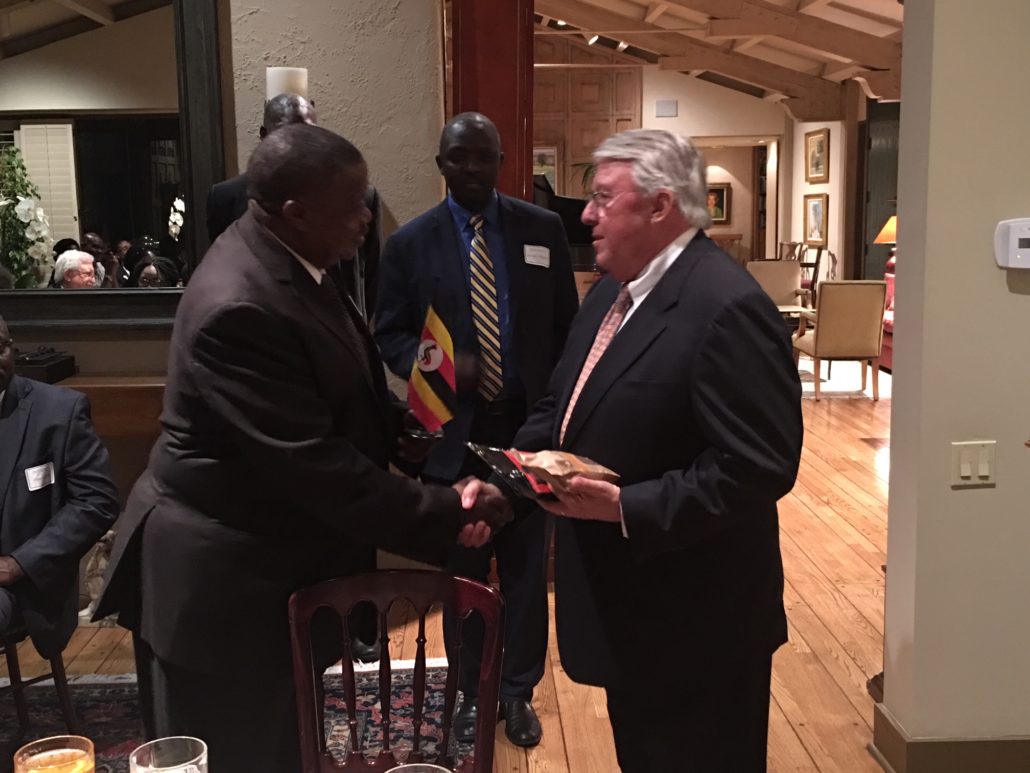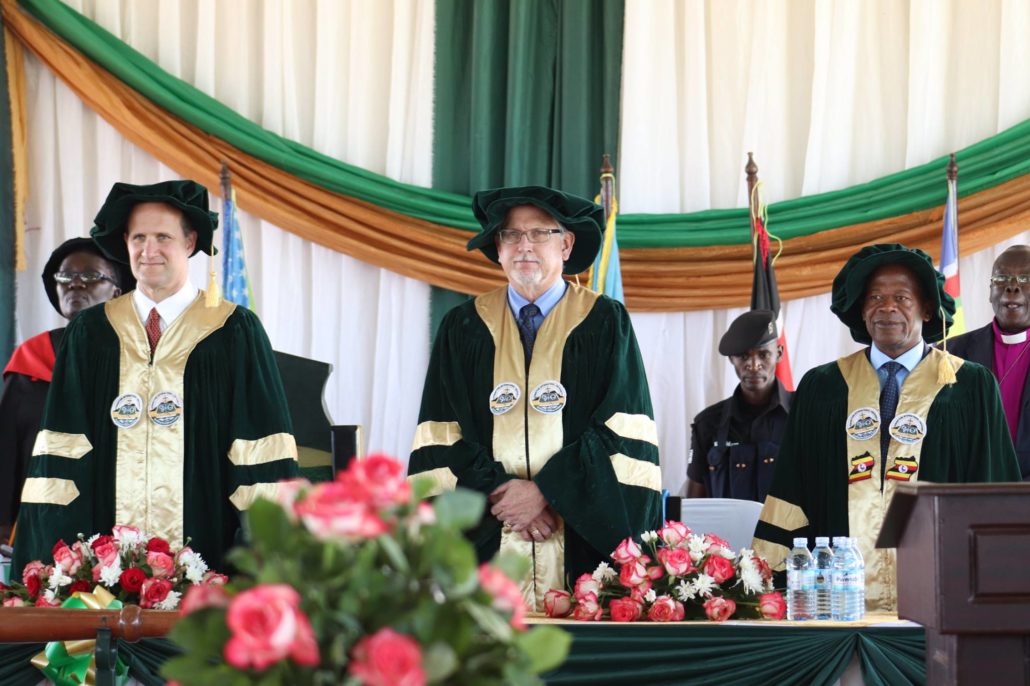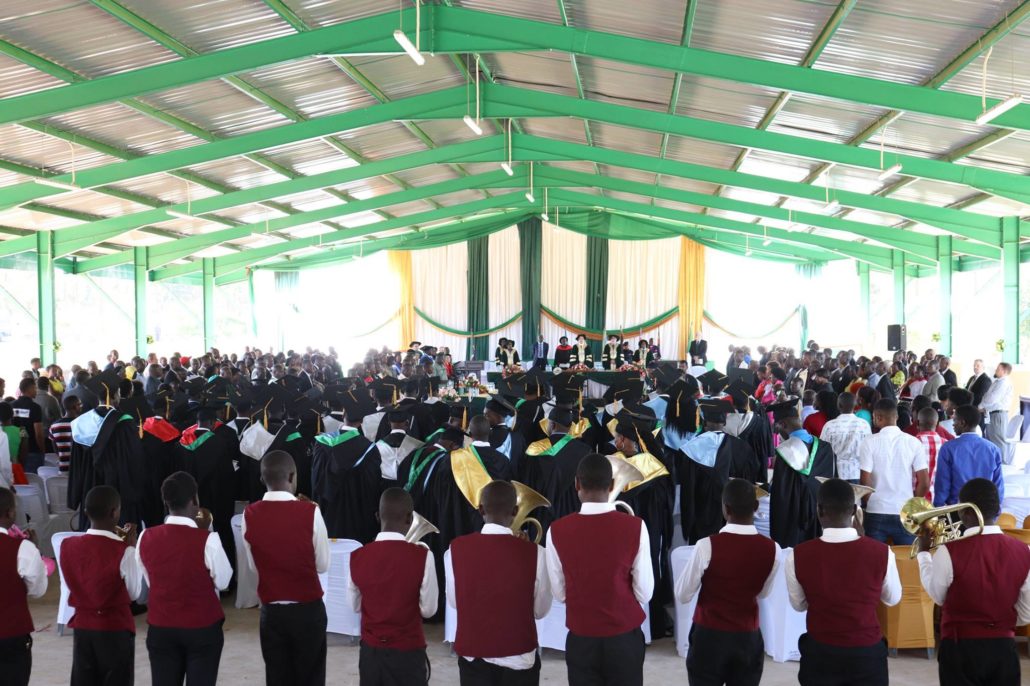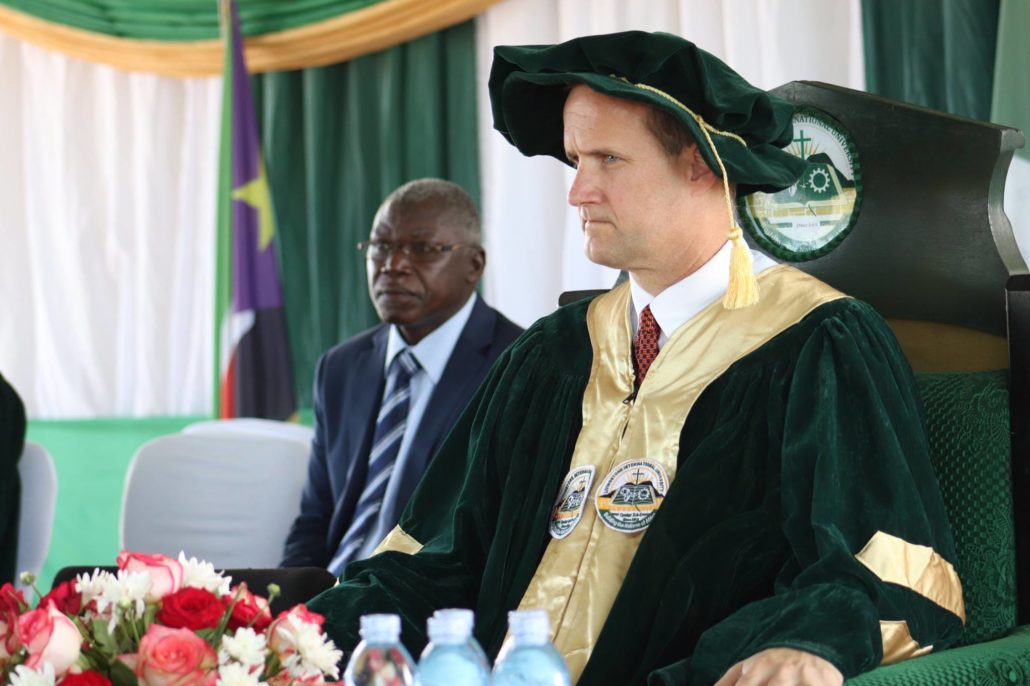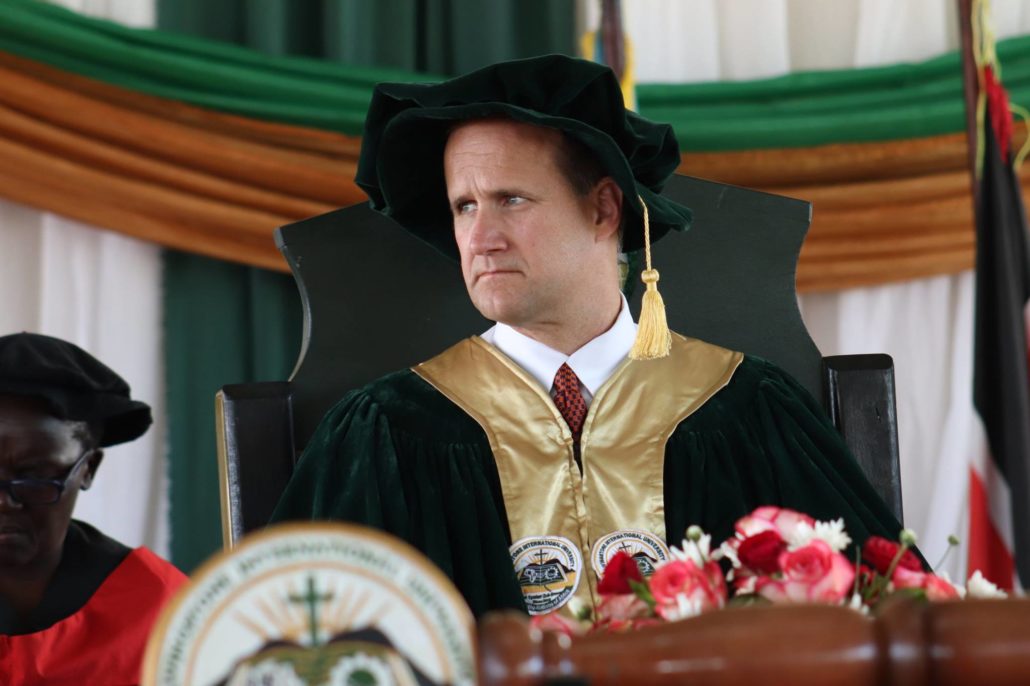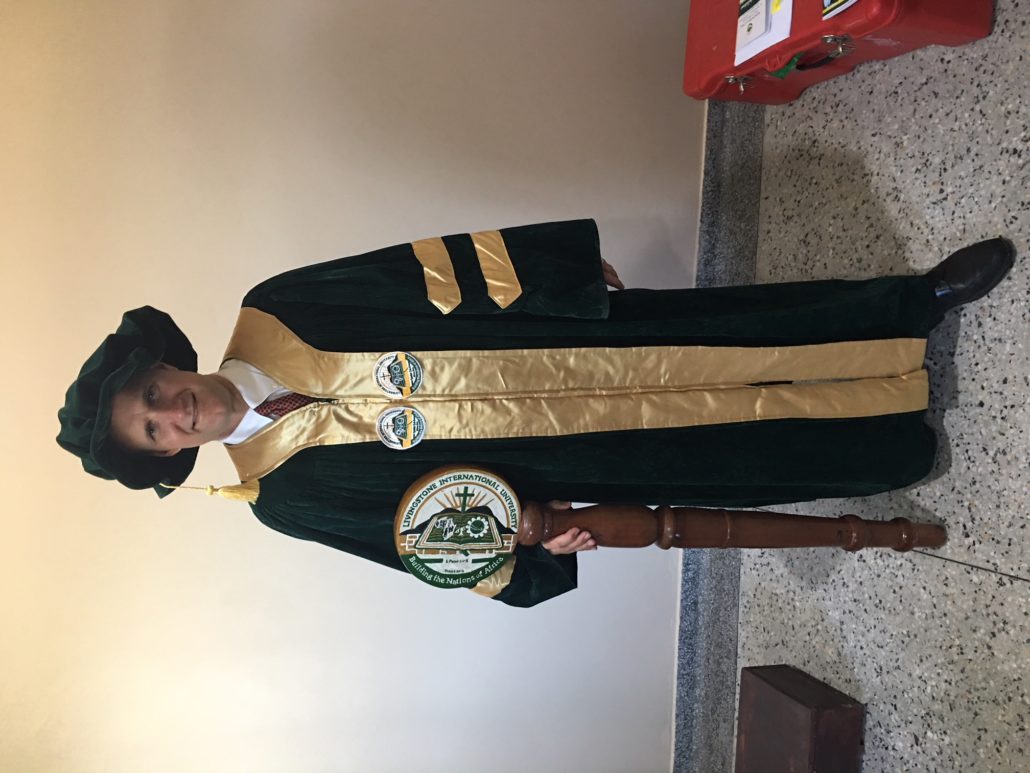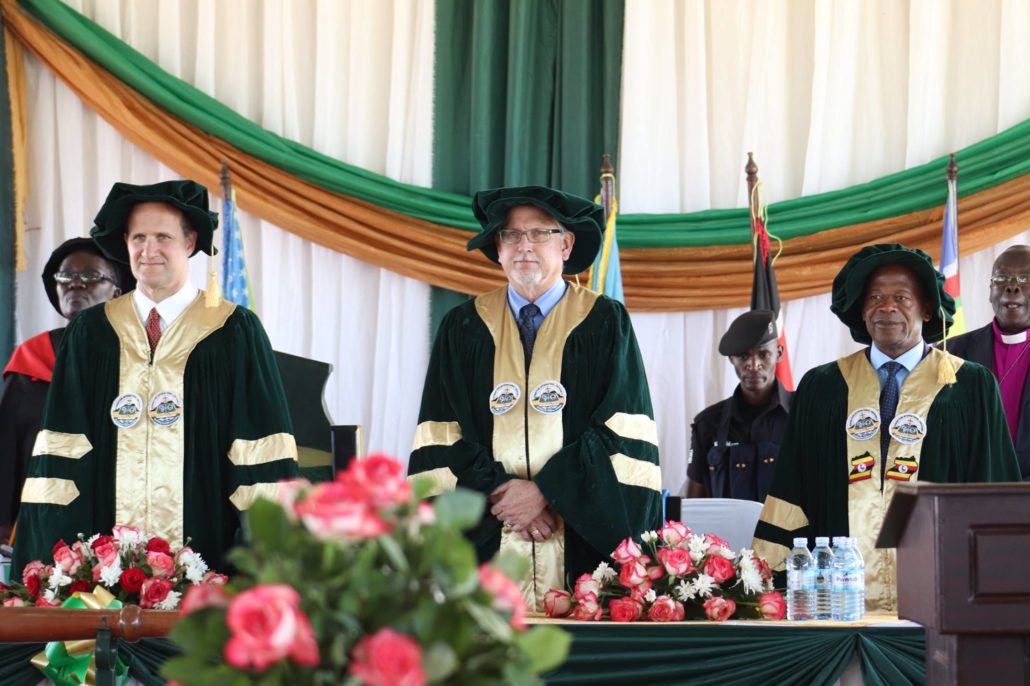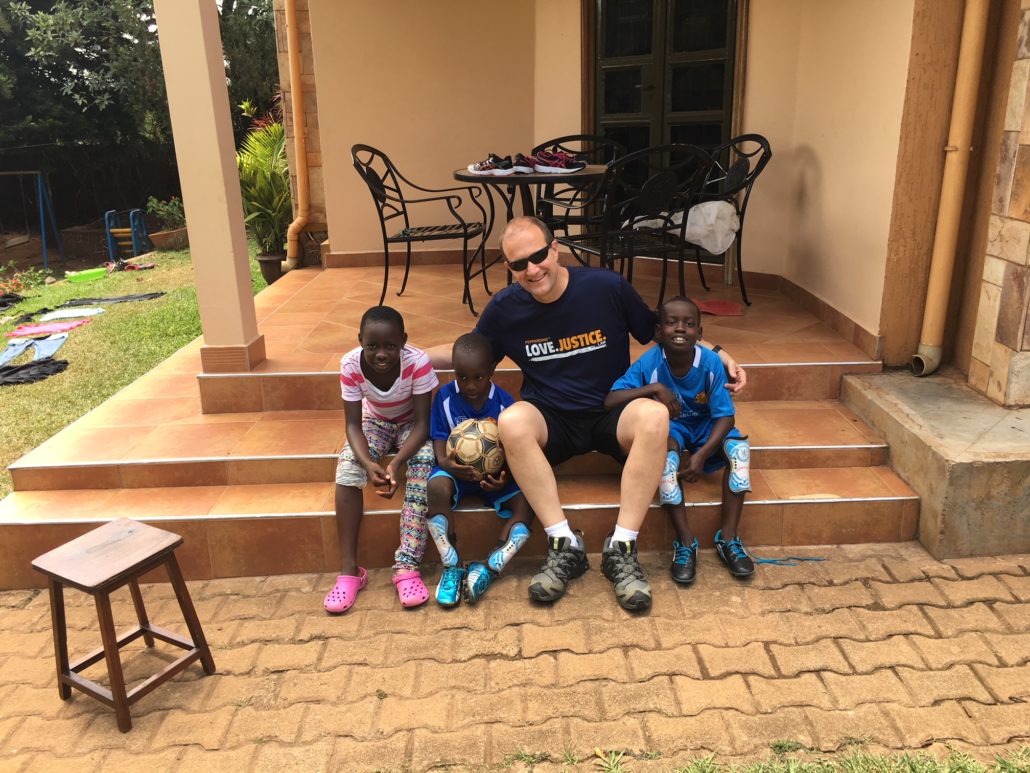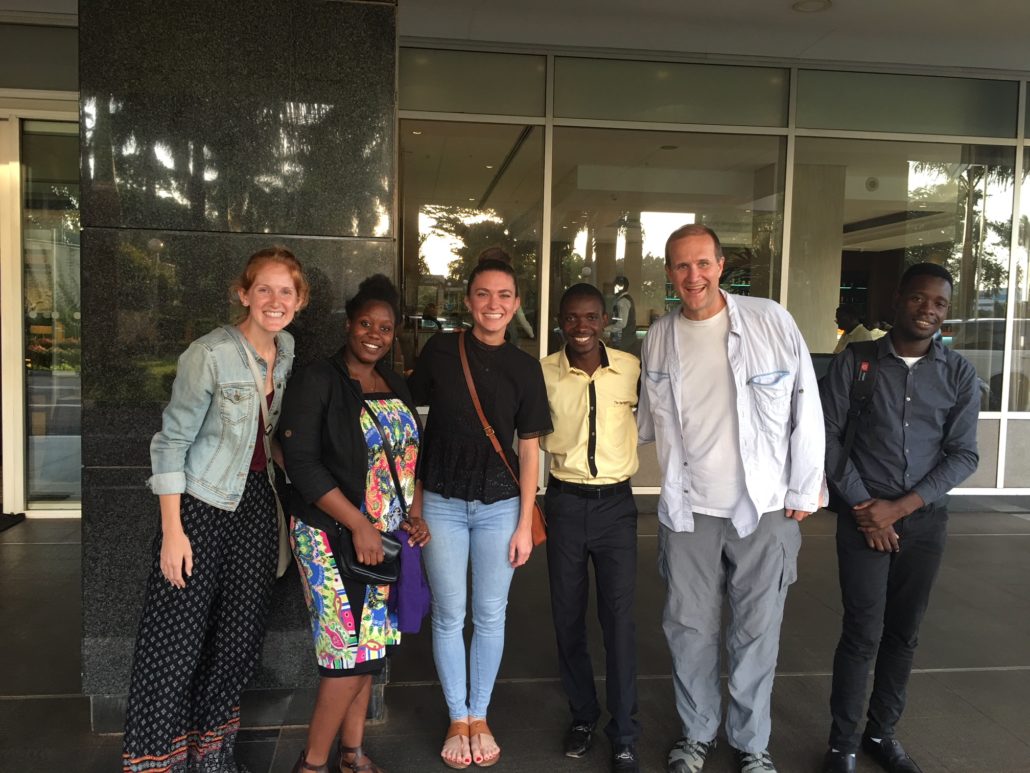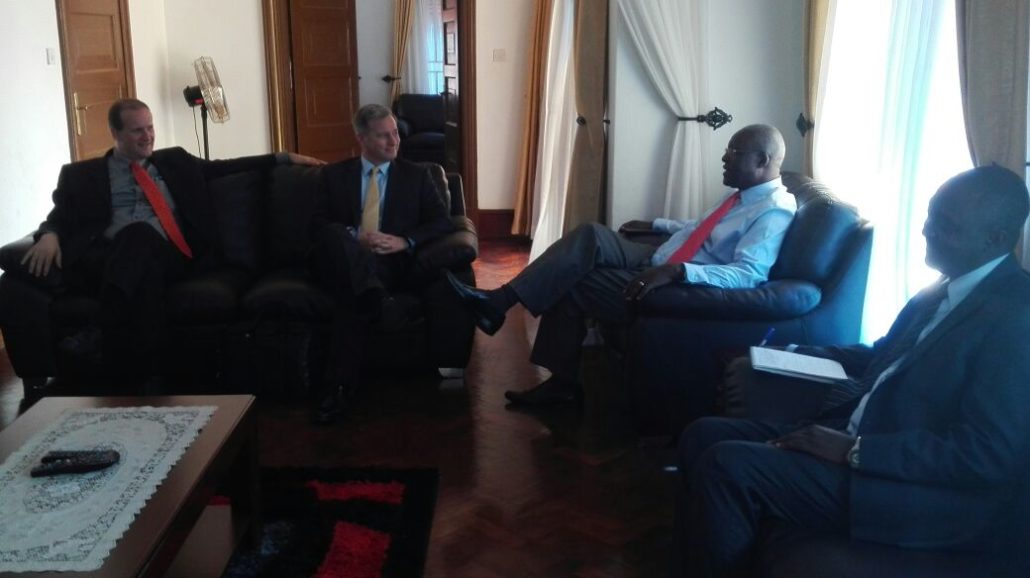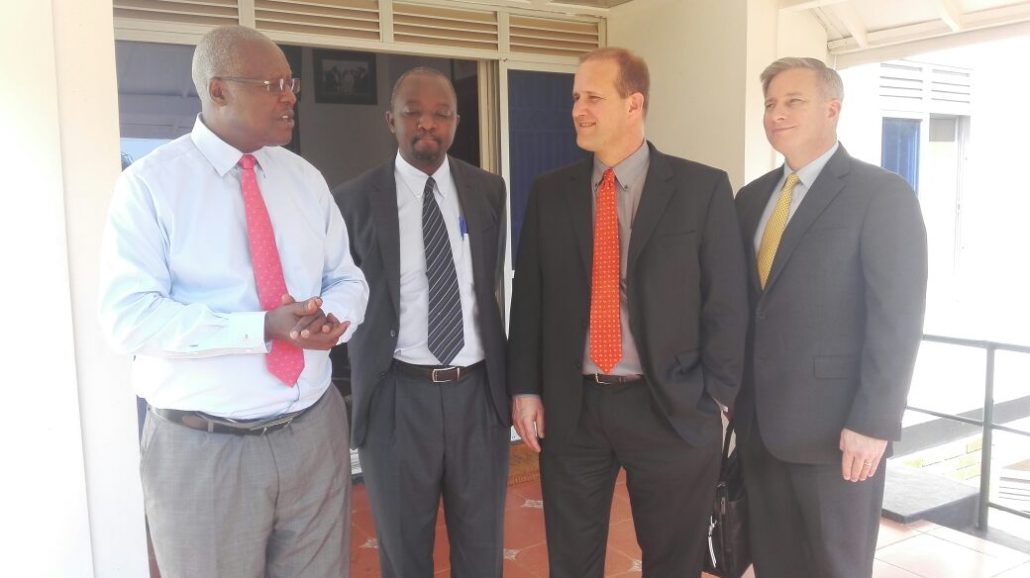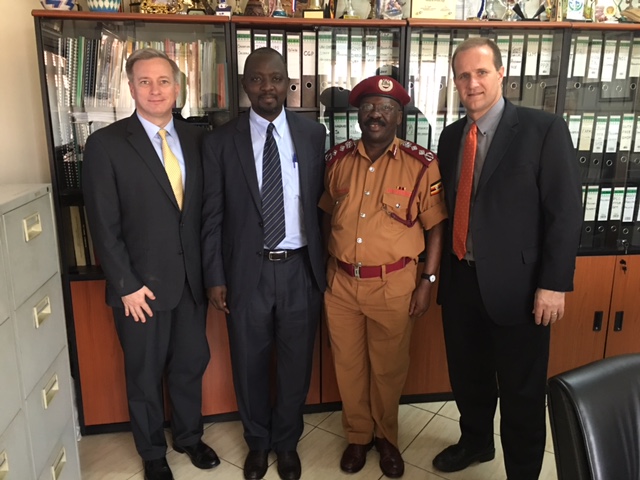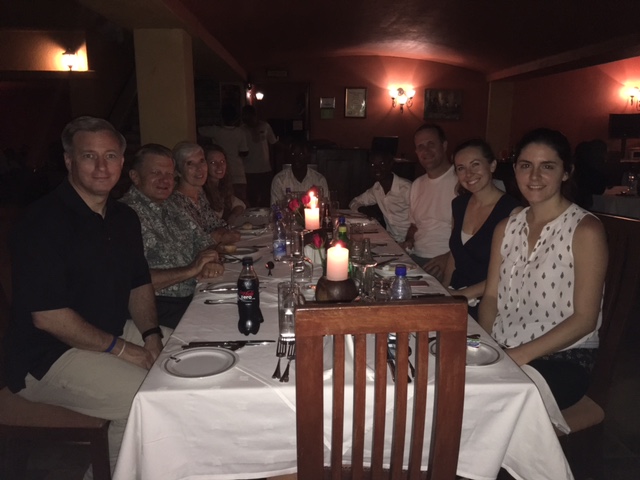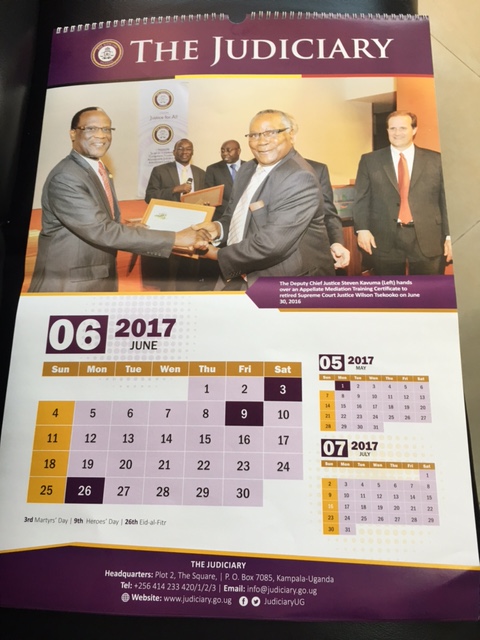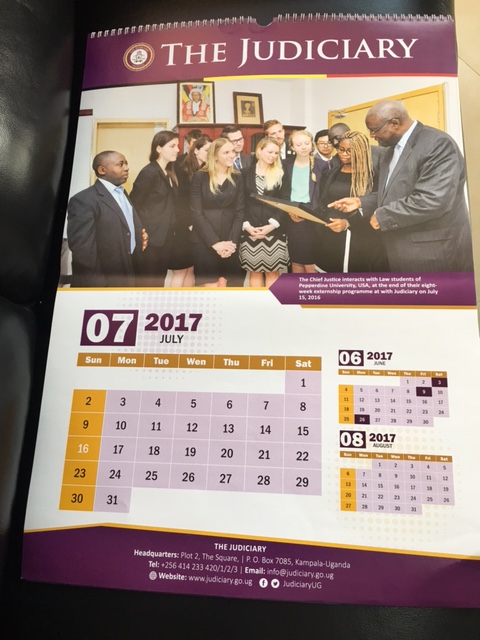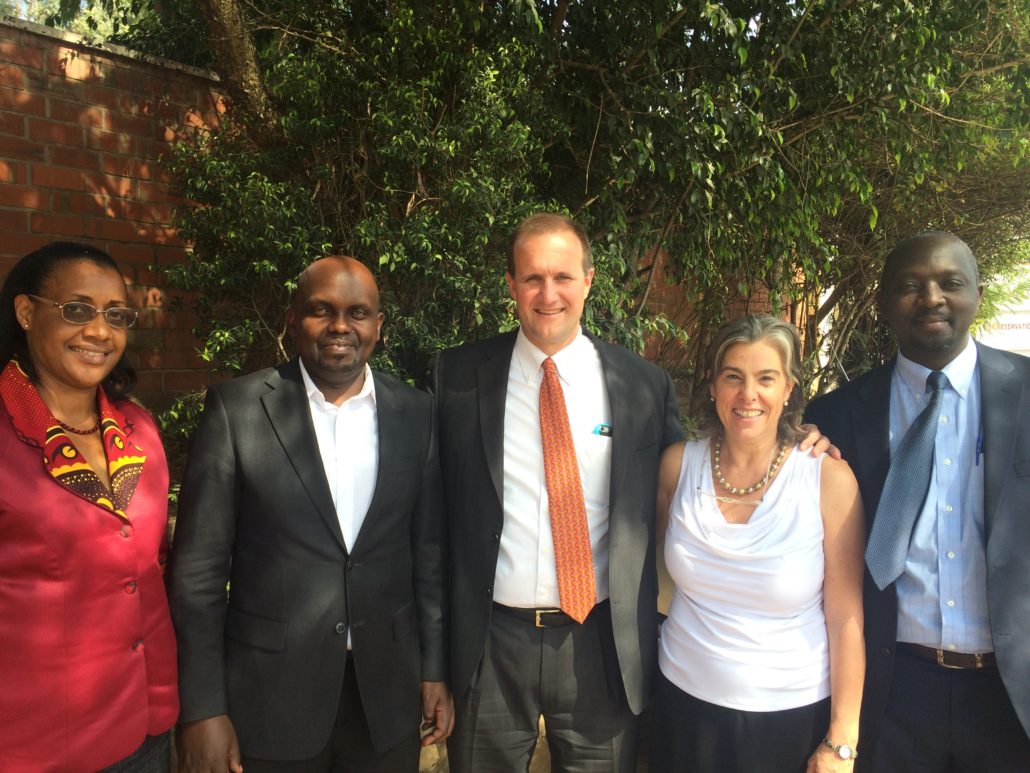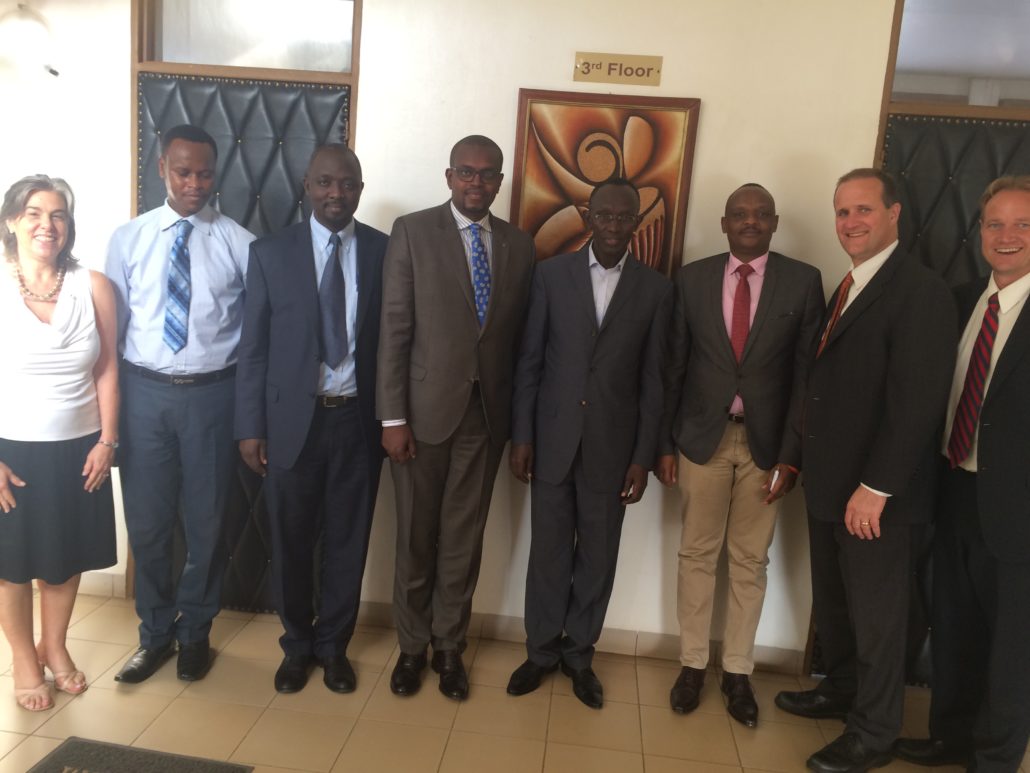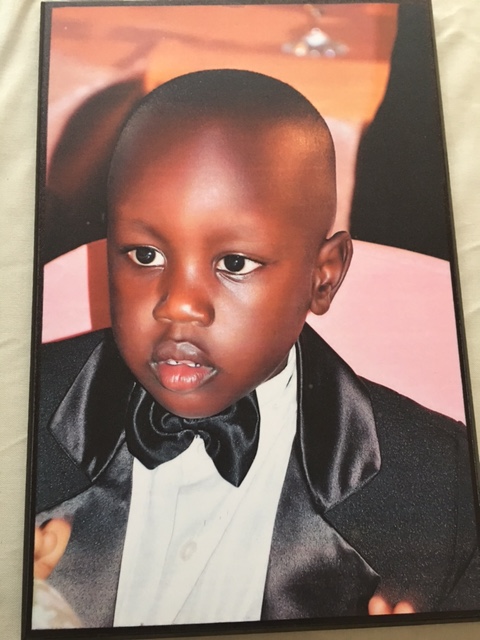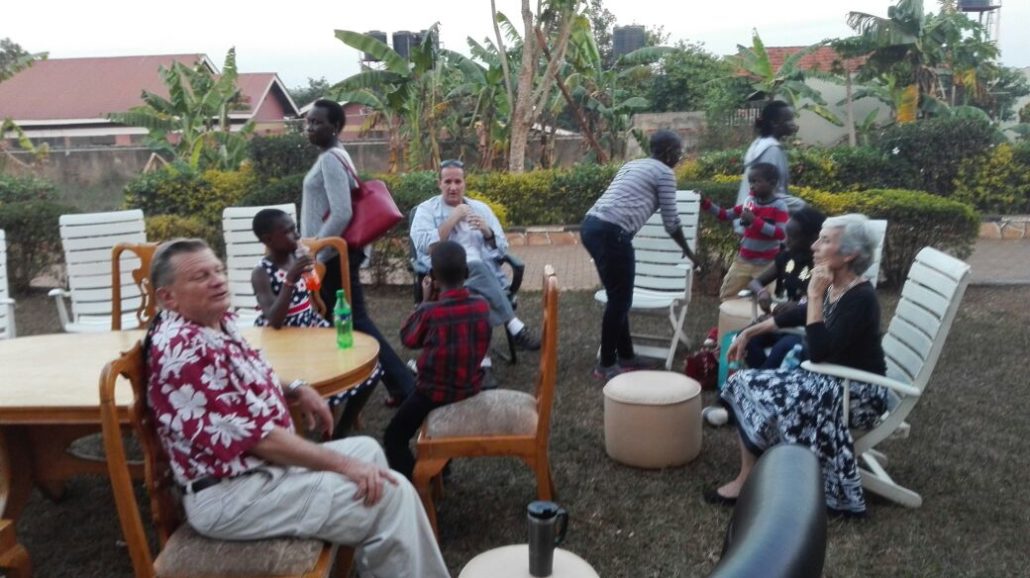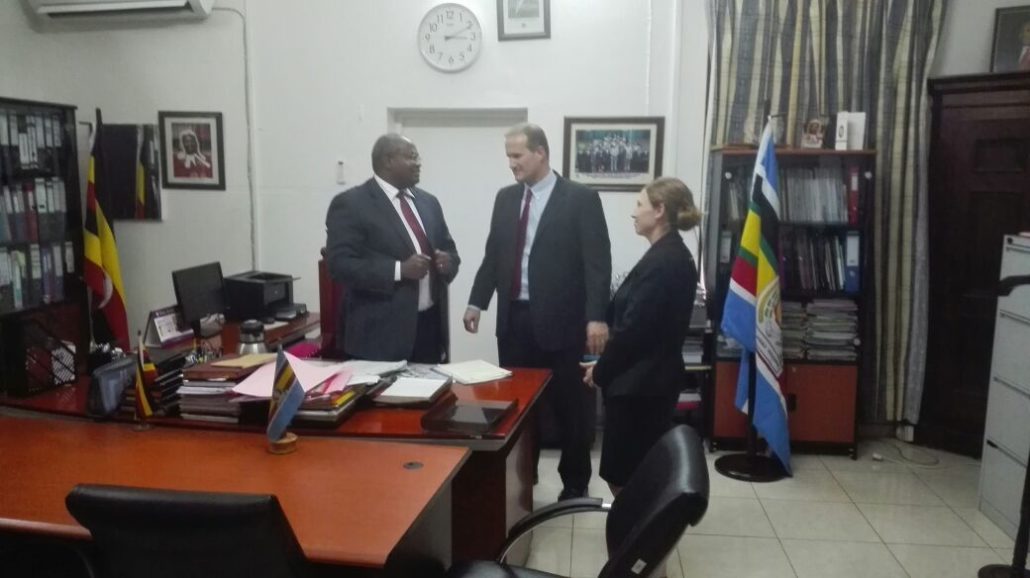I Think It’s Ghana Be A Long, Long Time
When I was living in Uganda in 2012, I received a request from the Missions Committee at our church – “Will you pop over to Ghana to visit the Christian high school our church supports?” I readily agreed, but neglected to point out that “popping over to Ghana” from Uganda is akin to “popping over to London” from Los Angeles.
Africa is that big.
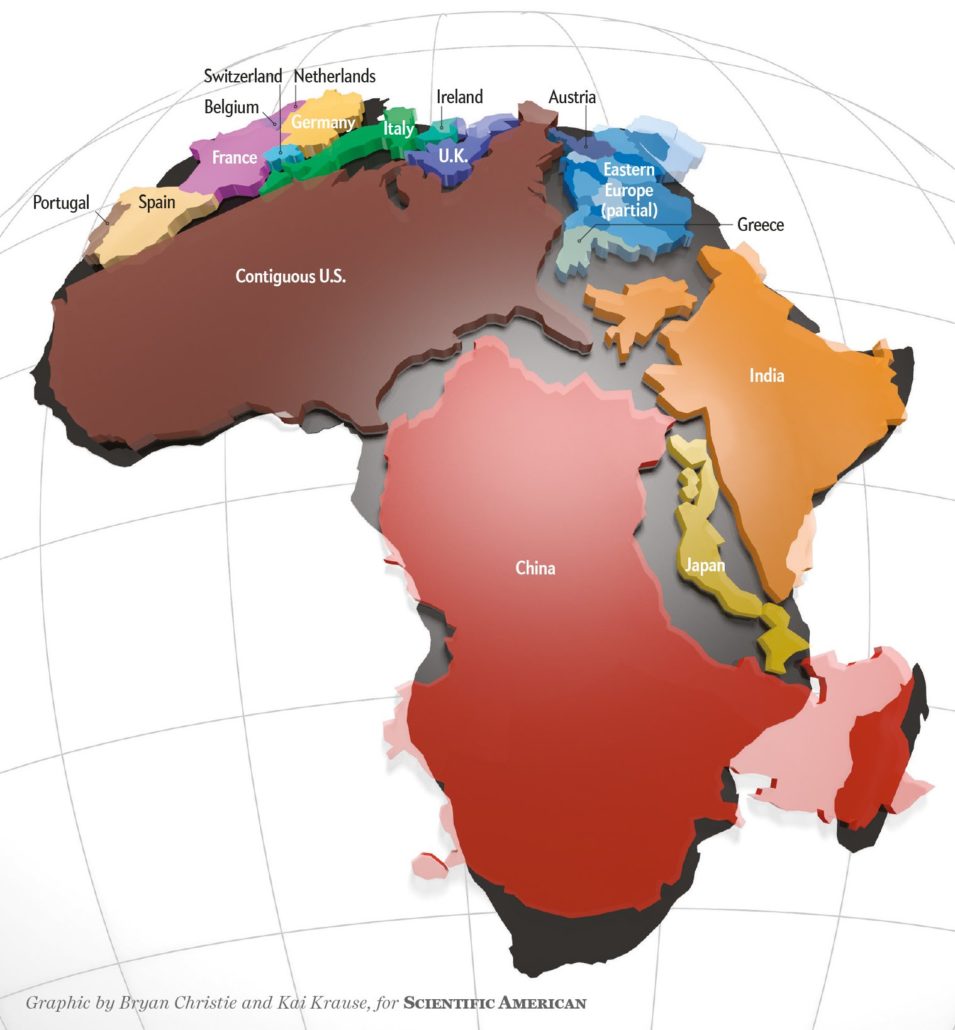
(In the picture above, Ghana is in Southern California and Uganda is in South Central India).
I have now traveled to Africa 26 times since early 2010, but the primary purpose of every prior trip revolved around my beloved Uganda. Until last week.
Ghana has been beckoning to me for several years now from multiple angles. Initially, my Memphis-based former ACU classmates JP and Jennifer Webber connected me on multiple occasions with a Ghanaian human rights lawyer who almost attended Pepperdine Law ten years ago. This lawyer, Francis, spent part of his youth in the Village of Hope – a ministry organization largely sponsored by American churches. Through JP, Francis heard about our work with Uganda on criminal justice reforms and has been encouraging me to keep Ghana on the radar screen if we ever expanded our African lens.
Then last year, two things happened that caused me to revisit this idea. First, Pepperdine graduate Laure Sudreau decided to invest heavily in the future of the global justice program’s work. Her incredible generosity allowed what is now the Sudreau Global Justice Program to think more expansively about ways we could provide access to justice beyond East Africa.
Second, the field office director for International Justice Mission (IJM) in Gulu, Uganda – with whom I had been able to work for several years – relocated to Ghana to lead that field office. Just before Will Lathrop made this move, we were together in Washington, DC during the signing of the Memorandum of Understanding between IJM and the Ugandan Justice, Law, and Order Sector. While we were together, Will probed Pepperdine’s willingness to expand into West Africa. While IJM’s work in Ghana is focused upon rescuing children trafficked into the Lake Volta region for forced labor and/or sexual exploitation, he and his IJM colleagues, he explained, would be happy to open up their network of contacts within the justice system to allow us to discuss Ghana’s level of interest in us providing the type of assistance we have provided to Uganda (and, to a lesser degree, Rwanda) in the criminal justice realm.
From my prior research on Ghana, I was aware that, like Uganda, Ghana had inherited a British form of criminal justice structure that mirrored in important ways our own. I also knew that Ghanaians spoke English, had democratic elections, and had an infrastructure that would be sufficiently safe and comfortable for our students. Likewise, I was aware that Ghana, like virtually all developing countries, struggled with the same challenges that Uganda did in providing timely access to justice for those charged with crimes.
So, over the course of the last six months, Will and I settled on an early December collaboration between Pepperdine and IJM in Ghana. For his part, Will and his team would arrange for meetings with all of the important sectors necessary for Pepperdine to ascertain whether the Sudreau Global Justice Program could assist Ghana in its quest to deliver justice to its people through the involvement of Pepperdine faculty, staff, students, and alumni. These meetings were to be scheduled over the course of two or three days, with Associate Dean Danny DeWalt joining me. (Danny is Chief Counsel to the Sudreau Global Justice Program and has been traveling to Africa through his co-leadership of Restore International (AKA Love Does) for over a decade). My schedule didn’t allow me to leave until Tuesday – landing in Ghana on Wednesday evening. This left us only Thursday and Friday, which we assumed would likely be enough if we were efficient.
Two weeks before take-off, two challenges arose. First, the eyeballs of Pepperdine Law School Dean Paul Caron – the man to whom Danny and I report – fell out. Not literally, but almost. Both retinas inexplicably detached, necessitating emergency surgery so as to stave off permanent partial blindness. The result was temporary blindness that would last long enough to ensure that Danny and I couldn’t both go on this trip. (Thankfully, all is now well with Paul’s eyes).
My first call in search of a substitute for Danny was to Dane Ball – a Houston criminal defense lawyer extraordinaire. Dane is a former student, a good friend, and nothing if not adventurous. He joined our prison project in Uganda this summer and made me promise to let him know when the next African justice trip was coming. He immediately accepted my invitation to join me in Ghana the next week.
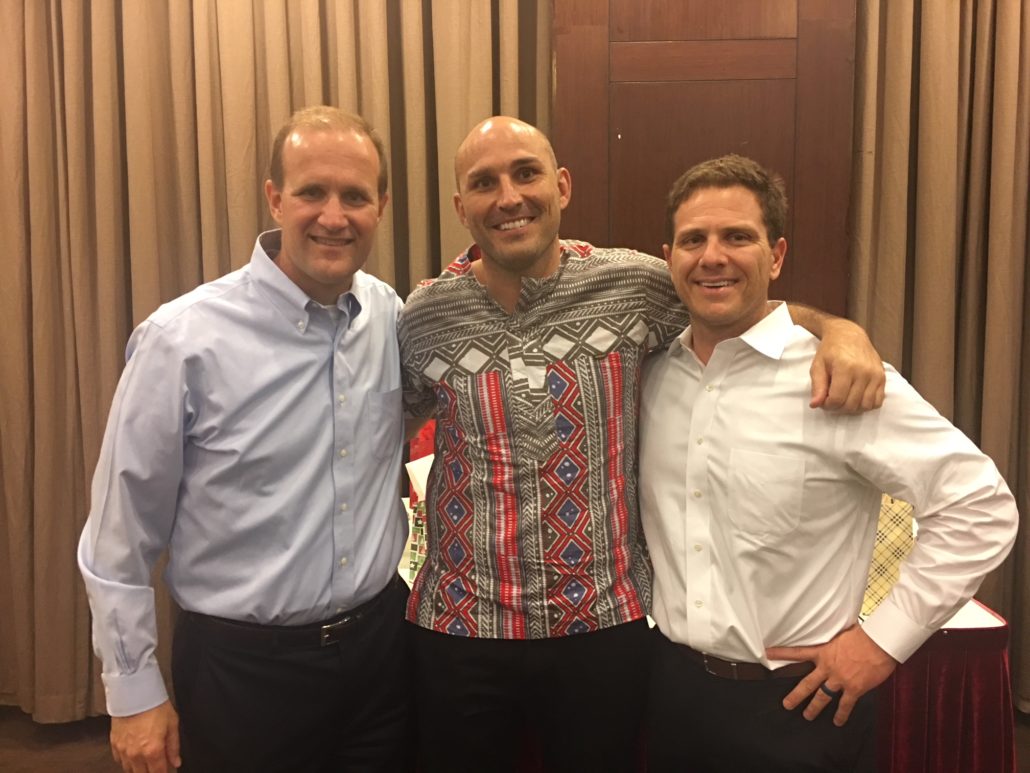
Me, Will, and Dane
Second, we learned that Ghana declared that Friday would be a national holiday to celebrate farmers. This, of course pinched us to one day of meetings. If our flight was delayed, then the trip would be for naught. But we were feeling lucky. So Tuesday morning, I set out from LA and Dane caught a plane in Houston. We met up in Amsterdam and then took the seven-hour flight from there to Accra, which is near the southern coast of this West African country that borders Togo, The Ivory Coast, and Burkina Faso.
We arrived at our hotel a little before midnight on Wednesday. Will and another IJM colleague picked us up at 7:00 a.m. and then perfectly orchestrated a series of highly productive meetings with: the Legal Counsel for the Ghana Prison Authority; the Chief Director and Deputy Director of the Ministry for the Interior; an influential Member of Parliament; the Director of Public Prosecutions; a Supreme Court Justice; and two human rights lawyers who are leaders among Ghana’s criminal law bar – one of these was the aforementioned Francis with connections to ACU friends.
The meetings couldn’t have gone better. Ghana does have many of the same criminal justice challenges as Uganda, is eager for the type of assistance we can provide, and wants to have Pepperdine summer interns and year-long Pepperdine fellows. Accordingly, I think it’s Ghana be relatively soon when Pepperdine has a year-round presence on the ground, and I think it’s Ghana be a long, long time that our relationship will last. (With apologies to Elton John).
I expect that we will have 2-3 students serving as interns in Ghana this summer and I predict that we will have a year-round Sudreau Fellow on the ground in the near future.
Because Friday was a national holiday, Dane and I decided to venture to the coast to check out sights our students, fellows, and short-term prison project volunteers would want to see during upcoming trips. We spent the whole day driving to, exploring, and driving home from Cape Coast. Sobering is woefully inadequate to describe our visit to the castle that served as a busy hub in the West African slave trade. Slave ships would come to this castle and buy West Africans who had been captured and enslaved by the local tribal leaders and then transport them to Europe. The conditions inside the castle and on the ships were horrific. For those venturing to Ghana, a visit to Cape Coast is a necessity.
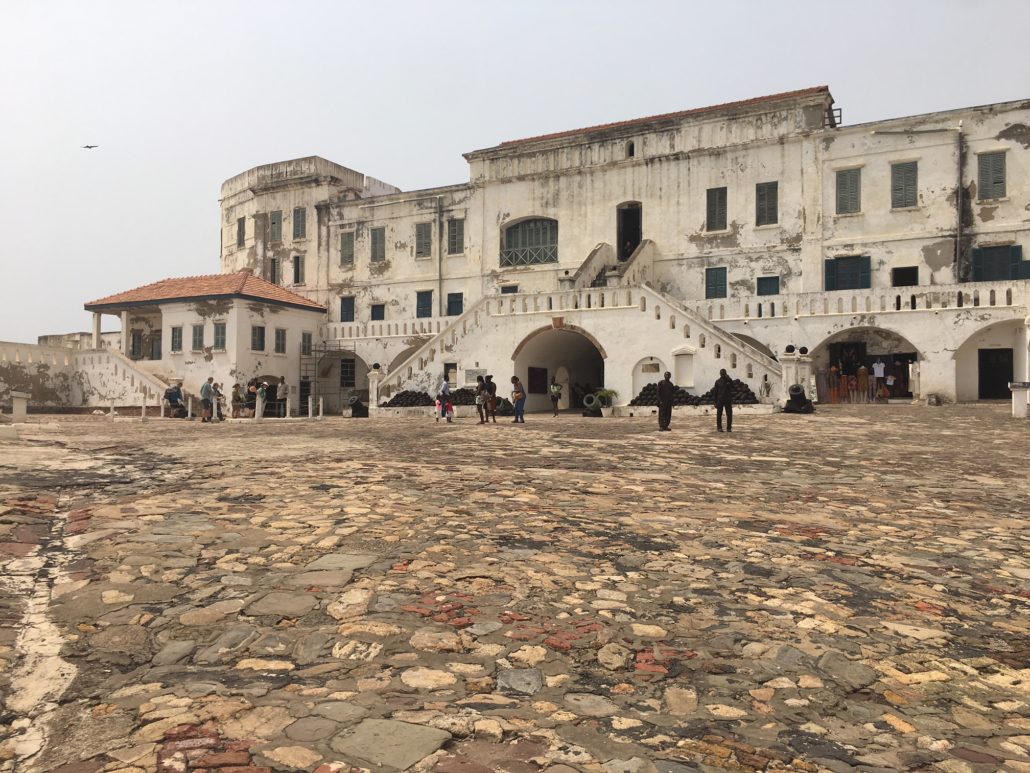
Cape Coast Slave Trade Castle
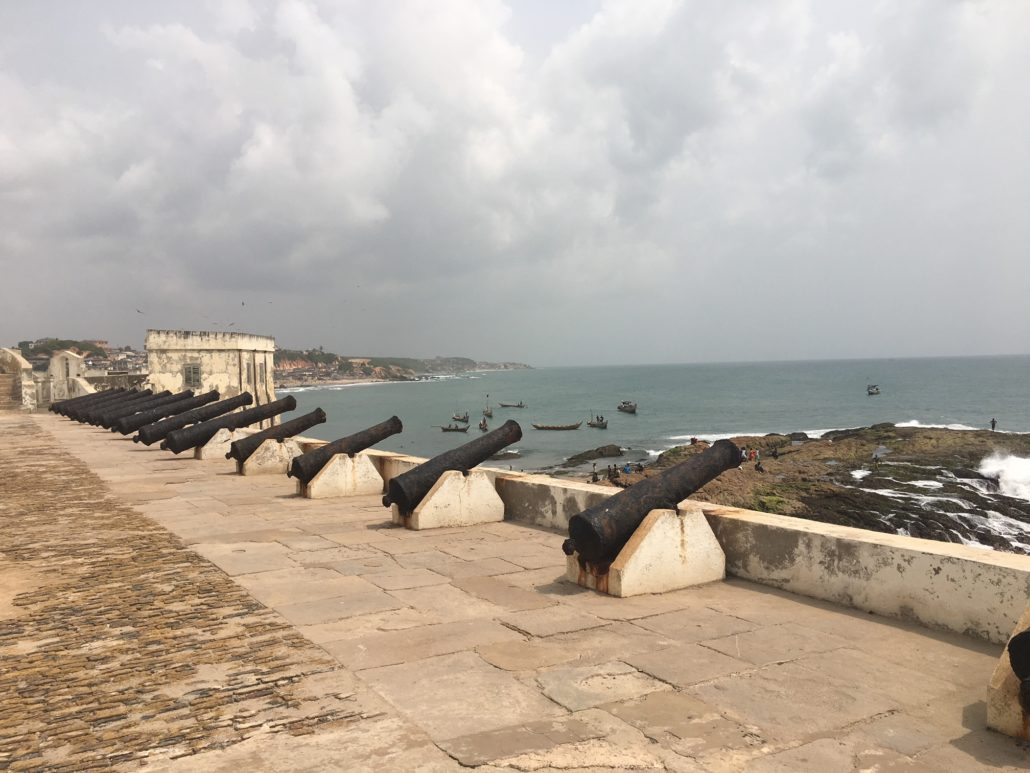
This otherwise downer of a day was made markedly more interesting by a Nigerian internet/phone scam we were able to witness up close and personal.
Just before we set off from Cape Coast for the three-hour drive back to Accra, our driver Stephen informed us that he needed to stop to buy some airtime for his phone, and he needed to do so right away. As in most of the developing world, phone usage is ordinarily purchased via scratch-off airtime cards, so we thought nothing of it.
Until it became clear there was nothing ordinary about this transaction.
After he bought the airtime card, he got out his phone and called a number he had been sent via text. What ensued was an animated discussion about prize money, bank accounts, and transaction fees. During the call, Dane jokingly muttered to me, “I am a Nigerian prince who has inherited a fortune that I can share with you if you just send me a small transaction fee.” The call ended with Stephen reading the number on the airtime card to the woman on the other end. As you might expect, I was quite curious, so he excitedly showed me the text he had received that had prompted his call.
I read to Dane the message: “Congratulations! You have been selected at random by FIFA as the grand prize winner of 75,000 Cedis. Please call to arrange to have the prize money sent to you.” Or words to that effect. I am embarrassed to say that Dane and I burst out laughing at Dane’s earlier prescience.
Jim: Stephen, you know this isn’t real, right?
Dane: Dude, this is a total scam. Did the person on the other end have a Nigerian accent?
Stephen: She did! How did you know that?
Jim: How much did you send them in airtime?
Stephen: 10 Cedis
Dane: OK, that’s only two bucks. Don’t send them any more money, OK?
Stephen (tentatively): OK, she said I won 75,000 Cedis (several years’ wages).
Jim: Stephen, my friend, FIFA is an international soccer federation. They are not based in Nigeria and have no incentive to send random text messages giving away lots of money to Ghanaians.
And yet . . . Stephen did not seem convinced that today wasn’t his lucky day. So, we all agreed that Stephen could call them back after the promised next instruction came in a few minutes, but he swore to us that he wouldn’t send them any more money.
Ten minutes later, he gets a text. We pull over and read it. Good news – the airtime he sent them enabled them to process the electronic transaction for the 75,000. He just needed to call back and arrange to receive the money.
Stephen: (smiling and nodding)
Dane and Jim: (frowning and shaking our heads)
Dane: Do NOT give them your bank account number.
Stephen: OK, I won’t, but I should call and see what they say.
This was getting interesting, so we leaned in to hear Jennifer the Nigerian as she answered Stephen’s call. Jennifer informed Stephen that he didn’t need to provide any bank account details. Instead, she had a paper check in her hand that he could pick up as soon as he was ready. Stephen excitedly inquired about where he needed to pick up the check. His shoulders slumped when she told him that the check was in Tamale – a remote village a mere 12-hour drive from Accra. “But I can’t come to Tamale right now,” Stephen complained. That was unfortunate, Jennifer explained. But they weren’t able to mail the check. Her supervisor, however, might be able to assist. Wait for a text from him and then call him back.
Stephen: (smiling and nodding)
Jim and Dane: (frowning and shaking our heads)
Dane and I then laid odds on how much the supervisor would ask Stephen to pre-pay for the wiring fees. A few minutes later, we got the answer. The text from the supervisor confirmed that they could, indeed, wire him the money as long as Stephen paid the bank’s transaction fee. Stephen called him and learned two things – first, the supervisor’s accent was distinctly Nigerian, and second, the transaction fee was 150 Cedis (a few days’ wages).
So, we hatched plan. I called Jennifer from my US phone and calmly told her that I was governmental agent Bob. (It may or may not be a federal crime to impersonate an FBI official, so let’s assume, ahem, that I steered clear of said law . . .) I explained to Jennifer that Stephen is an undercover agent for us and that we have been listening in on his calls with her. In a nervous and belligerent tone, she pretended to not know what I was talking about and then hung up.
Thirty seconds later, Stephen’s phone rang. Guess who answered? Yep, agent Bob. I told Jennifer that we were about to carry out a raid on the building she was working in, but Stephen asked me to tell her to run so she didn’t get arrested. “Run, Jennifer, Run!” I yelled. The line went dead, and we nearly died laughing.
Numerous subsequent calls to Jennifer from three different phones (Stephen’s, mine, and Dane’s) went to what now appeared to be a dead line. Moral of the story? Unless Publisher’s Clearing House shows up on your doorstep with a check that is bigger than you, you didn’t actually win anything.
On Saturday, Dane and I headed north to the Lake Volta region where we had a chance to spend an hour or so at a shelter where the 21 trafficked children that IJM recently rescued were being fed, loved, and educated after having spent years in forced and dangerous labor in rudimentary fishing boats on Lake Volta. These kids were sold by family or community members at the age of 5-7 and spent 12 hours a day diving down to untangle nets of their masters. One of the young teenage girls nursed a baby fathered by her master. The traffickers of these kids have been arrested, but hundreds more are still out there. The work IJM is doing is truly transformative for these kids.
We also had a chance to visit Sonrise Christian High School, which was founded and is run by Pepperdine graduate Joseph Dzamesi.
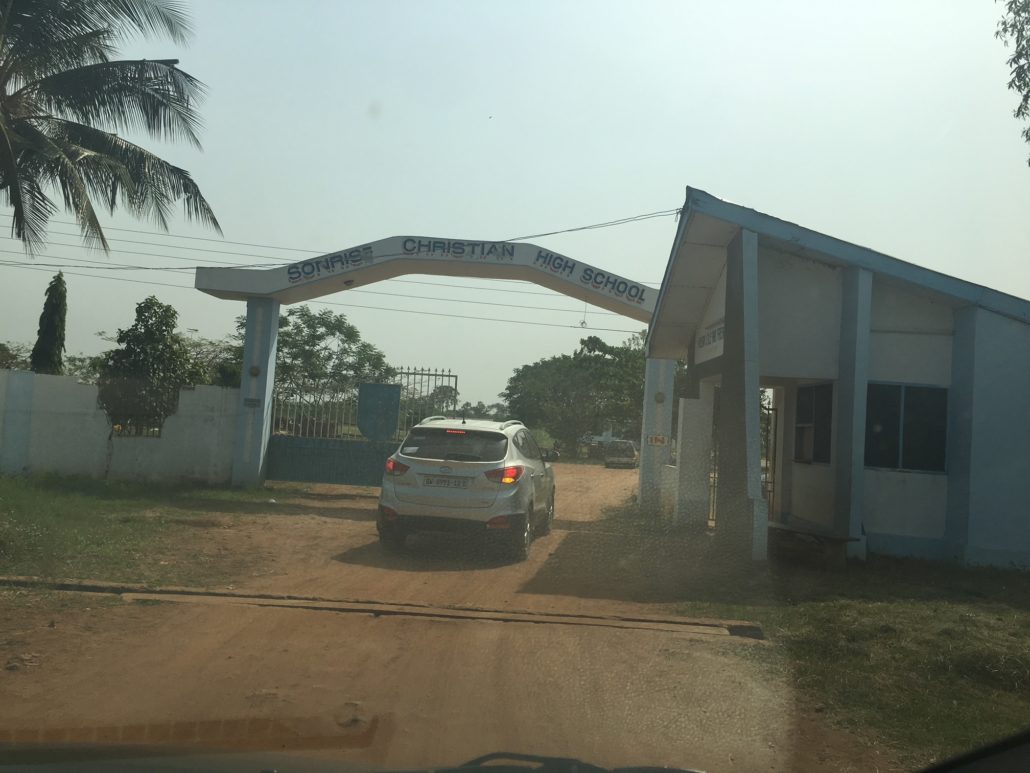
Joseph grew up in Ghana and returned after graduating from Pepperdine nearly twenty years ago. The University Church of Christ helps sponsor this school and the accompanying church.

